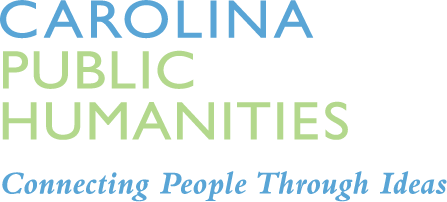Wayne County teachers, UNC explore local history
By Eric Johnson
There’s no better way to celebrate America’s birthday than by delving into American history. And thanks to a wonderful partnership between Wayne County and Carolina K12, more than two dozen local teachers spent last week delving into the rich history that connects North Carolina to our national story.
For two days, teachers from all over the county heard from artists, authors, musicians, and librarians about creative ways to help students appreciate local culture and history. From a professor at NC State, they heard about the ways North Carolina’s odd slang and strange dialects developed over generations. From an East Carolina University archeologist, they learned about the remarkable discoveries researchers are making in the soil of eastern North Carolina, shedding light on colonial America and the civilizations that existed long before the first settlers.
And from a historian at North Carolina Central University, teachers heard the stories of runaway slaves from Wayne County, and shared ideas for bringing that history alive by showing students that it happened right here in their own backyards.
Marty Tschetter from the Wayne County Public Library showed highlights from the library’s collection of local artifacts and historical documents, from centuries-old land surveys to newspaper clippings from the years after the Civil War. He shared the story of Dorothy Cotton, a Goldsboro native who became a close assistant to Martin Luther King during the most tumultuous years of the Civil Rights Movement. She even traveled to Olso with Dr. King when he won the Nobel Peace Prize.
“It’s this incredible story in our national history, and there’s someone from right here in Goldsboro who has been part of that,” Tschetter said. “That, to me, is really exciting.”
Emily Weil of the Wayne County History Museum handed out sheets of old postcards, along with ideas for incorporating historic images in the classroom. And Margaret Baddour of Wayne County Community College highlighted all of the great public lectures happening on campus this fall, covering everything from religious history to discussions of vaccine science.
Perhaps most importantly, at a time when it seems easier to sling online insults than have real dialogue, Wayne County teachers brainstormed with UNC Professor Brian Gibbs about how to get students talking — respectfully. “One of the most important things you learn from discussion is that human beings can change their minds,” Gibbs said. “It’s OK to change your perspective, it’s OK to change your mind, if you hear an argument that’s convincing to you.”
That’s what American history is, really — an ongoing argument, a never-ending discussion about what it means to pursue life, liberty, and happiness. All of the teachers who attended last week got to delve into those great debates and discussions thanks to a group of generous local donors who fully funded the Carolina K12 program. UNC Chapel Hill organized the event, but Wayne County residents brought the energy and a wealth of local resources.
“I remember every single teacher I had from the first grade to the twelfth,” said Charles Norwood, former superintendent of Wayne County Schools and one of the supporters of last week’s event. “As far as the development of intelligence and personality and outlook, the formative years are in K-12. That’s where the foundation of education is.”
And that’s why it was such a joy to be in Goldsboro last week, celebrating the incredible work teachers do in sharing local history and creating hometown pride for the next generation of students.
Eric Johnson is an advisory board member for Carolina Public Humanities.
